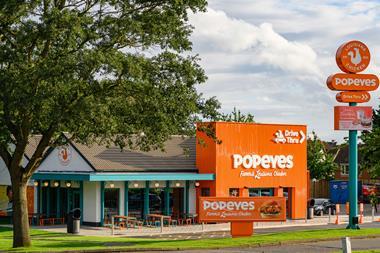
Ten years on from a shock WHO report linking nitrites in processed meat to cancer, four of the authors have written to health secretary Wes Streeting accusing UK governments of a “dereliction of duty” in failing to take action.
The experts claim more than 50,000 British people have suffered from bowel cancer because of the failure to act on the warning over the risks from nitrites in products such as processed meats such as bacon and ham.
They say that in addition to the “appalling human toll” of inaction, the cost to the NHS of treating victims of the disease is estimated to be at least £3bn since the alarm was first sounded about the use of the chemical.
The letter to Streeting comes 10 years to the day of the original report from the International Agency for Research on Cancer (IARC), part of the World Health Organization, which bracketed processed meats such as bacon and ham with asbestos and tobacco in terms of their carcinogenic potential.
The figures are based on expert analysis of official data from Cancer Research UK and the British Journal of Cancer.
Cancer Research UK estimates that, each year, 5,400 UK cases of bowel cancer are caused by processed meats. The research published in the BJC calculates the cost of treating patients with colorectal cancer at £59,000 a year.
Signatories include four of the scientists who issued the first warning about the hazards, as well as Professor Chris Elliott, founder of the Institute of Global Food Security and a former UK government adviser.
Demand for transparency
The letter, organised by the Coalition Against Nitrites, says: “Nitrites in cured meats promote the formation of nitrosamines, compounds with clear carcinogenic potential. Despite repeated confirmation from independent studies and sustained public concern, policy responses remain fragmented and inadequate.
“Further delay will consign avoidable cancers to future patients and their families. Scientific evidence and public health ethics demand transparency and action.”
In the letter, the Coalition Against Nitrites urges the health secretary to take these immediate steps to protect consumers.
The letter calls for action including mandatory front-of-pack warnings on nitrite-cured products that communicate cancer risk to consumers and parents.
It also calls on the government to fund and incentivise research and industry transition to safer curing methods and nitrite alternatives, including technical support for small and medium-sized producers.
Finally it urges ministers to commit to a long-term plan to phase out nitrite use in processed meats sold in the UK, backed by regulatory measures to ensure compliance.
Professor Denis Corpet of Toulouse University, one of the authors, said failure to act was a “dereliction of duty”.
“For a decade, we have known that nitrite-cured meats cause cancer, yet failed to act,” he said. ”That is not just complacency, it is a dereliction of duty. When safer alternatives exist, continuing to expose people to preventable carcinogens is indefensible from any public health perspective.”
Public health landmark
Another scientist and signatory who worked on the 2015 report, Professor Robert Turesky, of the University of Minnesota, said: “When the IARC report was published in 2015, evidence linking processed meat to cancer was strong. A decade later, it is even stronger, and many preventable cancers have likely occurred. The evidence now calls for public health action.”
The experts have also written a separate letter to the European Union health and food safety commissioner urging further action to phase out nitrites, while conceding that the EU, now on the brink of reducing permitted levels of nitrites in processed meats, has moved some way in the right direction.
Writing for The Grocer, Elliott says: “Ten years ago, the World Health Organization’s International Agency for Research on Cancer classified processed meats such as bacon and ham as Group 1 carcinogens, placing them in the same category as tobacco and asbestos. It was a landmark moment in public health science.
“Yet a decade later, the UK government has done virtually nothing to reduce exposure to nitrites, the curing agents that make these products pink and long-lasting but also create nitrosamines, compounds known to trigger cancer.”
“If ministers want to show they are serious about prevention, they should require clear front-of-pack cancer warnings on nitrite-cured products, support small and medium-sized producers to adopt safer technologies; and commit to a phased reduction and eventual ban on nitrite additives.”



















No comments yet